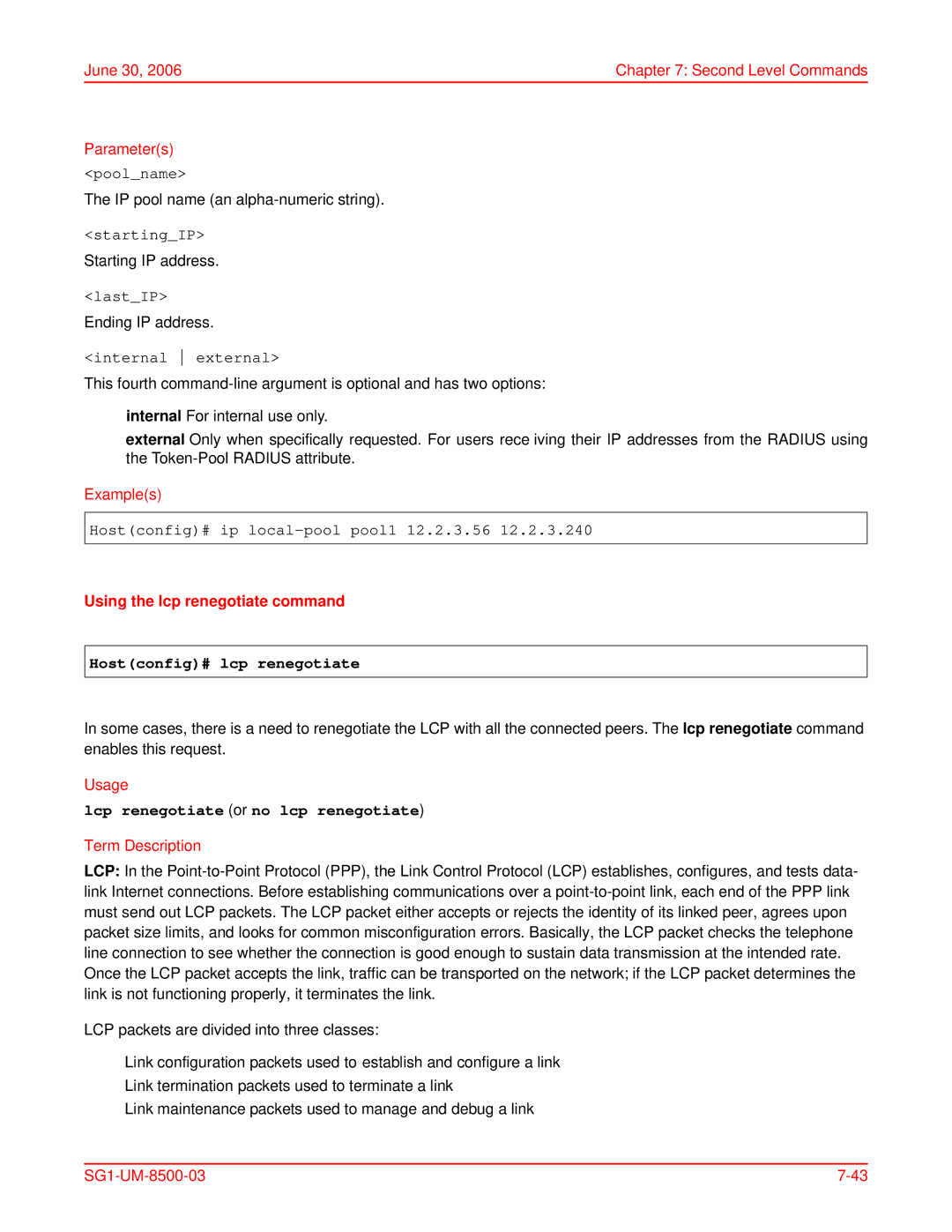
June 30, 2006 | Chapter 7: Second Level Commands |
Parameter(s)
<pool_name>
The IP pool name (an
<starting_IP>
Starting IP address.
<last_IP>
Ending IP address.
<internal external>
This fourth
•
•
Example(s)
Host(config)# ip
Using the lcp renegotiate command
Host(config)# lcp renegotiate
In some cases, there is a need to renegotiate the LCP with all the connected peers. The lcp renegotiate command enables this request.
Usage
lcp renegotiate (or no lcp renegotiate)
Term Description
LCP: In the
LCP packets are divided into three classes:
•Link configuration packets used to establish and configure a link
•Link termination packets used to terminate a link
•Link maintenance packets used to manage and debug a link
|
